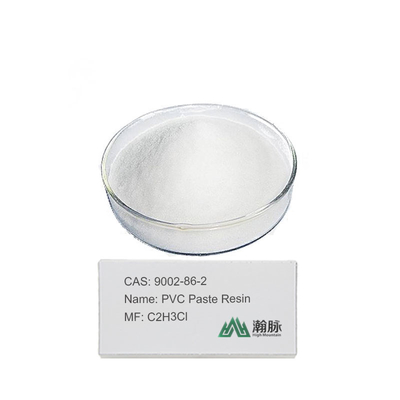

Polyvinyl chloride (PVC) paste resin is a highly versatile and widely used material in the plastics industry. Known for its ability to be processed into plastisols and organosols, PVC paste resin is utilized in numerous applications ranging from consumer goods to industrial products. Its adaptability and excellent physical properties make it an essential component in the manufacturing sector.
Appearance: Fine, white powder that is free-flowing
Degree of Polymerization: Generally falls between 1000 and 1500, affecting the resin's viscosity and processing characteristics
K Value: Typically between 65 and 70, indicating the molecular weight and viscosity level
Density: Approximately 1.4 g/cm³, contributing to the stability and robustness of the final product
Thermal Stability: Maintains integrity up to around 200°C, beyond which decomposition occurs
Solubility: Insoluble in water but can dissolve in various organic solvents, including ketones and esters
Detailed Specifications
PVC paste resin is offered in multiple grades, each tailored to specific industrial needs. Key specifications include:
Particle Size Distribution: Determines the smoothness and consistency of the plastisol
Viscosity Range: Varies depending on the grade, impacting the flow and application process
Plasticizer Compatibility: Ensures the resin mixes well with different plasticizers to achieve desired properties in the final product
| Molecular Formula | C2H3Cl |
| Molar Mass | 62.49822 |
| Density | 1.4 g/mL at 25 °C (lit.) |
| Melting Point | 170-195 °C (decomp) |
| Boling Point | 0.100 °C |
| Vapor Presure | 2580mmHg at 25°C |
| Appearance | Powder |
| Specific Gravity | 1.385 |
| Color | White to Off-White |
| Storage Condition | 2-8°C |
| Stability | Stable. Combustible. Incompatible with strong oxidizing agents. |
| Refractive Index | n 1.54 |
| MDL | MFCD00084459 |
The broad applicability of PVC paste resin stems from its ability to form flexible, durable, and aesthetically pleasing products. Some common applications include:
Synthetic Leather: Used in automotive interiors, fashion accessories, and furniture coverings, providing a leather-like texture and durability
Coated Textiles: Employed in manufacturing items like tarpaulins, awnings, and protective clothing due to its waterproof and wear-resistant properties
Wall Coverings: Used in the production of decorative and protective wall coverings that are easy to clean and maintain
Floor Coverings: Ideal for creating resilient, slip-resistant flooring options suitable for both residential and commercial settings
Medical Supplies: Integral in the production of flexible medical devices, including gloves and tubing, due to its biocompatibility and flexibility
Children’s Toys: Utilized in making safe, flexible, and durable toys for children
To maintain the quality and performance of PVC paste resin, proper storage and handling practices are essential:
Storage Conditions: Store in a cool, dry environment, away from direct sunlight and moisture. The ideal storage temperature is below 30°C.
Packaging: Typically packaged in moisture-resistant, sealed bags or drums to prevent contamination and moisture ingress.
Handling Precautions: Wear appropriate personal protective equipment (PPE), such as gloves, masks, and safety goggles, to prevent skin contact and inhalation. Ensure that the workspace is well-ventilated to avoid exposure to dust and fumes.
![]()